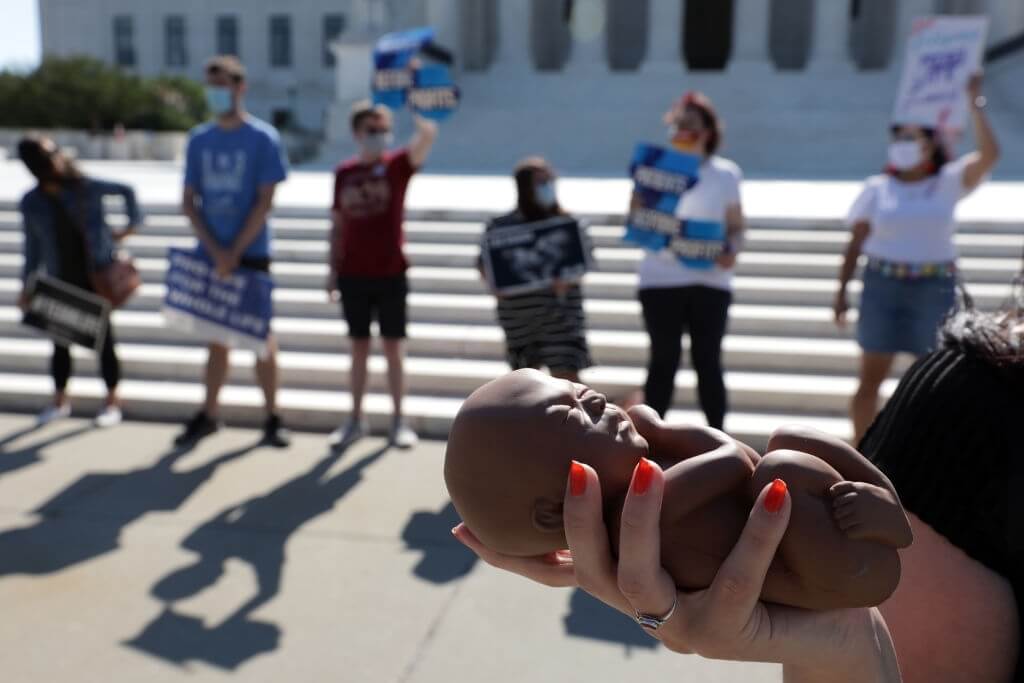The latest legal battle about reproductive rights under President Donald Trump’s administration has seen the judiciary shift to the right during his tenure. Abortion-rights advocates made a lawsuit on Tuesday, attempting to overturn the new Arizona law, which would prohibit abortions because of Down syndrome or other genetic abnormalities.
Furthermore, the case challenges a “personhood” clause that grants all human beings’ rights to fertilized eggs, embryos, and fetuses in the womb. If a court does not stop the legislation, it is scheduled to take effect on September 29.
A Lawsuit Is Filed In Arizona To The Ban On Down Syndrome Abortion
According to Emily Nestler, senior attorney at the Center for Reproductive Rights, everybody has a constitutional right to abortion. Also, that right doesn’t really take into consideration the cause for the abortion. Politicians should not be given the authority to question individuals about their motives for obtaining an abortion.
Republican-controlled legislatures throughout the nation have welcomed attempts to severely limit or outright prohibit abortion, bolstered by the Supreme Court’s shift to the right during Trump’s presidency. According to the Guttmacher Institute, which advocates for abortion rights, states passed more than 90 new limits on abortion this year, the highest in decades.

The Supreme Court indicated in May that it might be ready to revisit Roe v. Wade, the 1973 decision that established a national right to abortion before a baby could live outside of a mother’s womb, which is typically about 24 weeks of pregnancy. The court agreed to take into consideration a Mississippi legislation that aims to prohibit abortions beyond 15 weeks of pregnancy in certain cases.
A significant component of SB1457 is being challenged in the Arizona lawsuit, which was signed by Republican Gov. Doug Ducey in April after passing through the Republican-controlled Legislature on party-line votes.
The law enables prosecutors to file felony charges over physicians who perform the abortions when they are aware that the procedure is being conducted primarily to correct a genetic defect in the baby. Anyone who assists in raising funds or paying for an abortion may face criminal charges as well. Doctors who fail to report an abortion may also lose their medical licenses. Any medical or mental health practitioners who fail to report an abortion may be subject to a $10,000 fine.
According to the complaint, the legislation will have a chilling impact on interactions between doctors and their patients, prohibiting physicians from guiding women through a difficult decision-making process. Furthermore, it claims that the fear of criminal prosecution will deter doctors from performing abortions for any reason if they have grounds to believe the baby may have a genetic defect.
Abortion opponents claim that the law guarantees that children who are diagnosed with impairments before birth are not subjected to prejudice. When the bill was passed into law in April, Cathi Herrod, president of the anti-abortion organization Center for Arizona Progress, termed it “one of the most important pro-life laws in recent history.” She did not respond to attempts to contact her for comment on the case.
Abortion prohibitions for people with Down syndrome have gained popularity in recent years in many Republican-controlled states, most notably in Arizona and South Dakota.
This year, Democratic Gov. Roy Cooper of North Carolina rejected a Down syndrome abortion restriction that had been enacted by the state’s Republican-controlled legislature. According to the lawsuit, which was filed in Phoenix U.S. District Court by the Reproductive Rights and the American Civil Liberties Union Center on behalf of two abortionists, two abortion clinics, the National Council of Jewish Women, the National Organization of Women, and the Arizona Medical Association, the lawsuit was brought by the Center for Reproductive Rights and the American Civil Liberties Union.